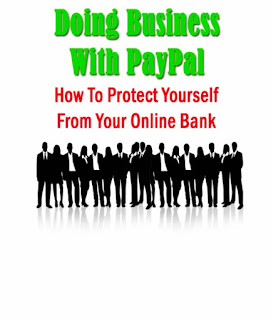Doing business with PayPal
PayPal is the world’s largest payment processing company, with over 50
million account holders worldwide.
Part of the huge eBay empire since they became a wholly owned
subsidiary in October, 2002, PayPal offers what is generally a fast, easy
and safe way to both receive and send money online.
Perhaps it should come as no surprise that as a part of the eBay group,
over 90% of eBay merchants and traders accept PayPal as their
preferred manner of payment. So it is that the company now handles
more than £9.5 billion in online monetary transactions every year.
PayPal offers a payment system and method wherein even the smallest
business or private individual can send and accept money to and from a
huge number of countries worldwide, as long as both parties to the
transaction have an email account.
In addition, PayPal is able to offer many of the financial facilities most
commonly associated with banks and other similar commercial
institutions such as credit cards.
The simple and basic fact is that it is almost impossible to run any kind
of successful online business without using the services of PayPal.
Although many other companies have tried to set up services that
replicate most or all of what PayPal do, so far, no-one has succeeded in
capturing either the imaginations of marketers (if they are only ‘clones’,
then why switch over to a company with no additional benefits?) or any
significant share of the market either.
PayPal does not therefore have a complete monopoly of the payment
processing business online, but, certainly as far as the internet
marketing community are concerned, they might as well have!
And in general, PayPal do a pretty good job of what they do and most of
the time they are able to keep the wheels of worldwide internet
business spinning relatively smoothly.
Indeed, the vast majority of online business entrepreneurs who deal
with them are more than happy to do so, presumably because that
have never suffered any appreciable problems when working with
PayPal.
Yet it is important to understand from the outset that they are a
privately owned payment processing company and not a bank, although
it does seem that they have been moving in that direction recently.


